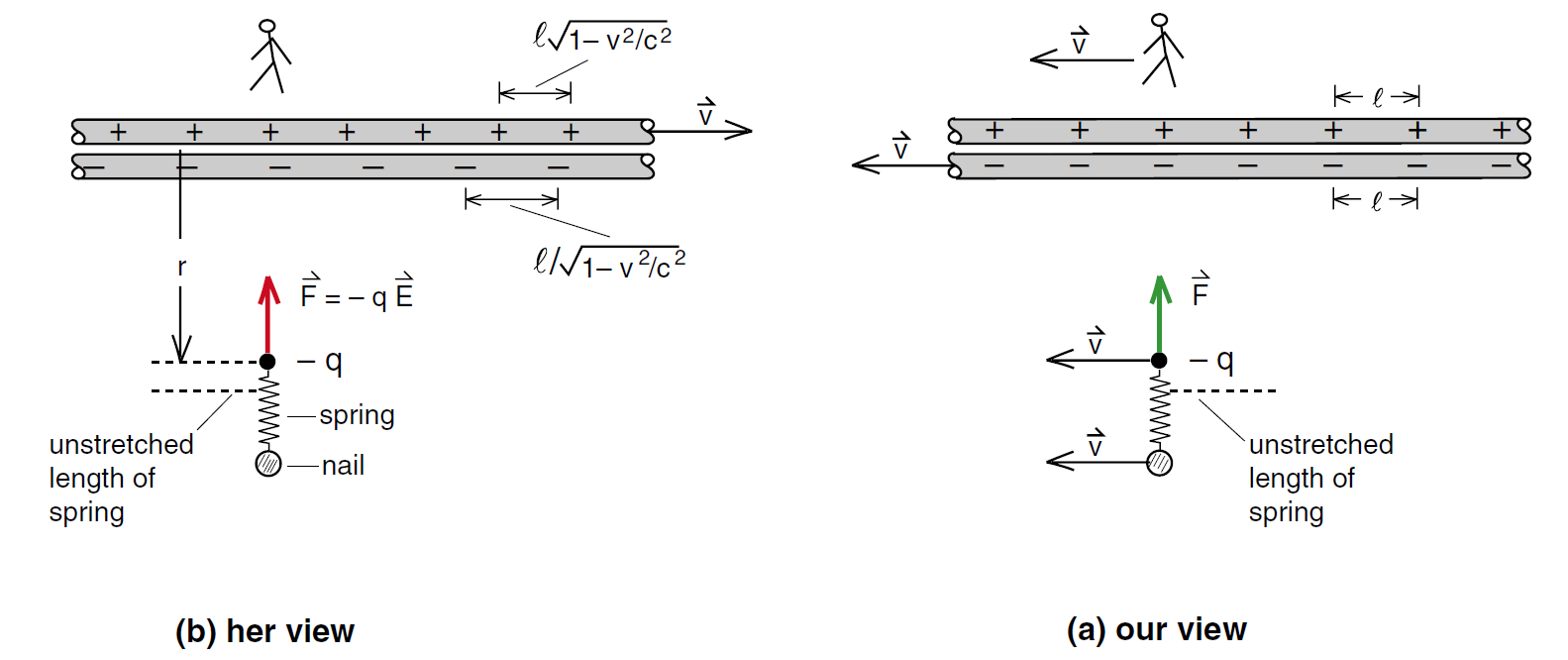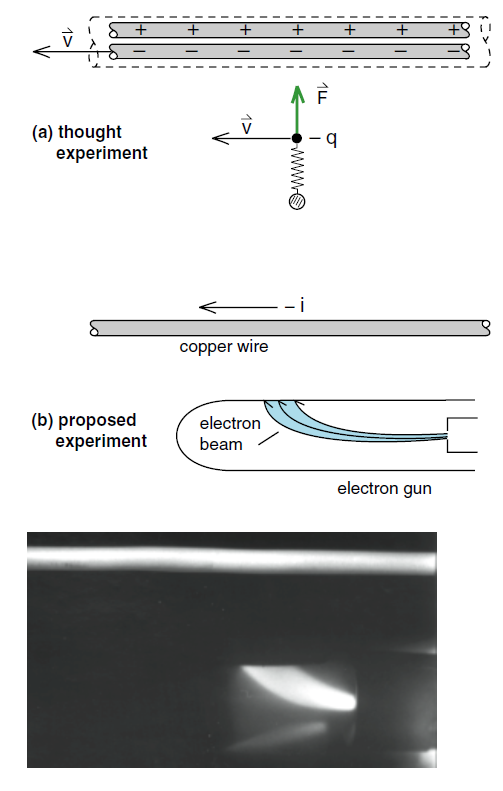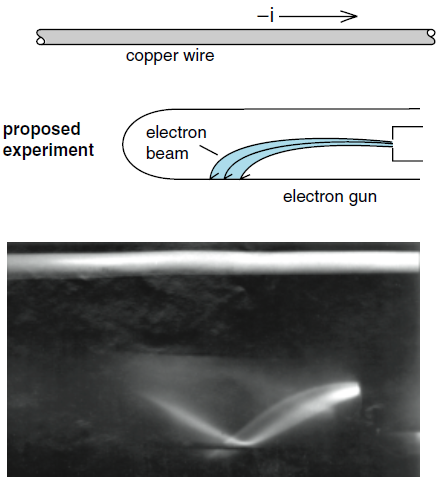Magnetic Forces
Historically an electric force was defined as the force between charged particles and was expressed by Coulomb’s law. The force in Figure (1a) between a moving test charge and an uncharged wire does not meet this criterion. You might say that for historical reasons, it is not eligible to be called an electric force.
The forces we saw in Figures (2c) and (3b), between a moving charge and a neutral electric current, were known before special relativity and were called magnetic forces. Our derivation of the magnetic force in Figure (1a) from the electric force seen in Figure (1b) demonstrates that electric and magnetic forces in this example are the same thing just seen from a different point of view.

Figure 1: Two views of the same experiment. For the observer moving with the electrons, she sees a positively charged wire exerting an attractive force on the negative charge at rest. We see an electrically neutral wire carrying a negative current, and a moving negative charge. The spring is still stretched, meaning the attractive force is still there.

Figure 2c: For an experimental test of the results of the thought experiment, we replace the moving negative charge with a beam of electrons in an electron gun. The electrons are attracted to the wire as predicted.
When we go from Figure (1b) to (1a), which we can do by moving our head at a speed of 2 millimeters per minute, we see essentially no change in the physical setup but we have an enormous change in perspective. We go from a right directed positive current to a left directed negative current, and the force on the test particle changes from an electric to a magnetic force.

Figure 3: If we reverse the direction of the current in the wire, the electrons in the beam are repelled
 الاكثر قراءة في المغناطيسية
الاكثر قراءة في المغناطيسية
 اخر الاخبار
اخر الاخبار
اخبار العتبة العباسية المقدسة


